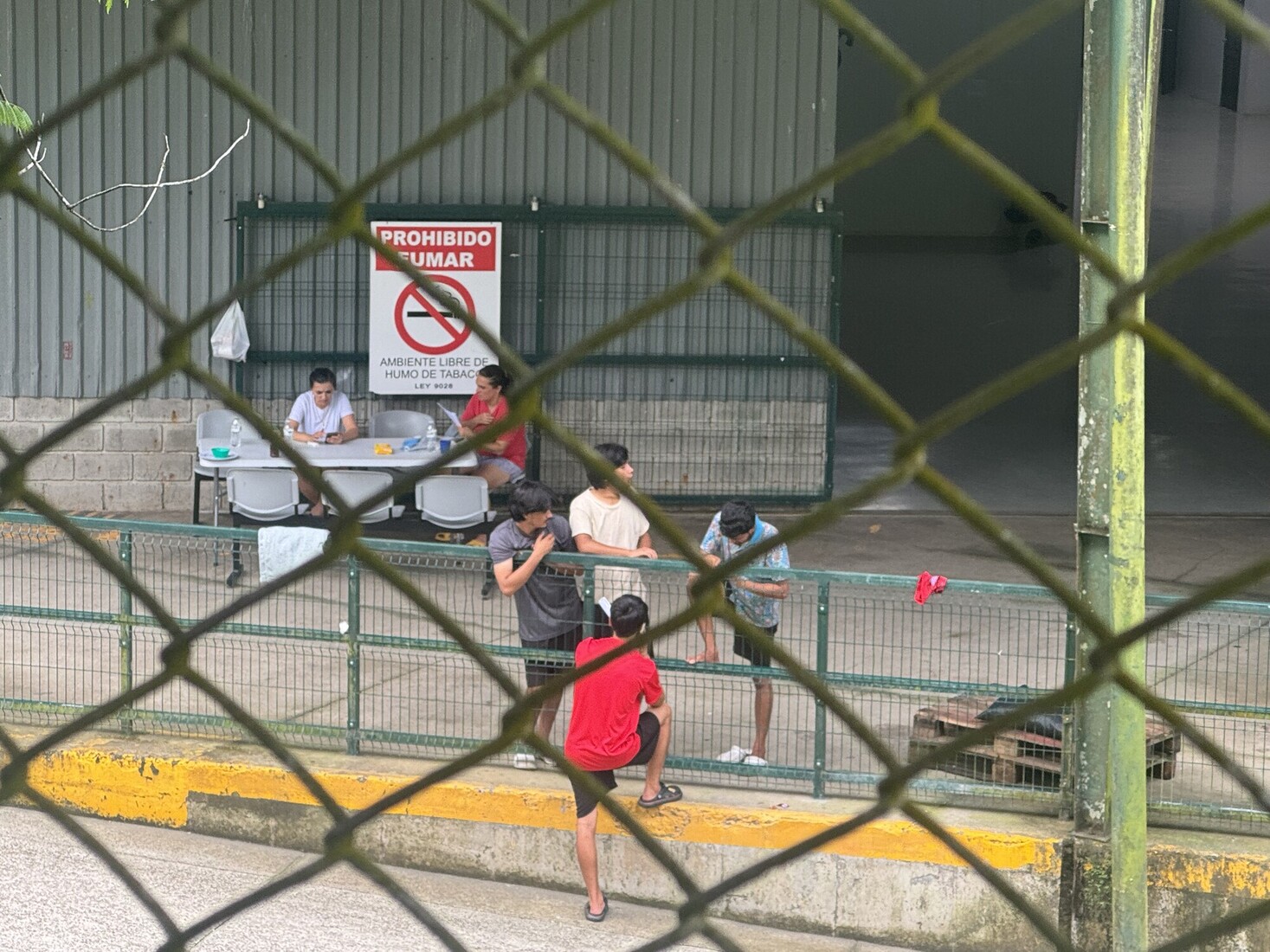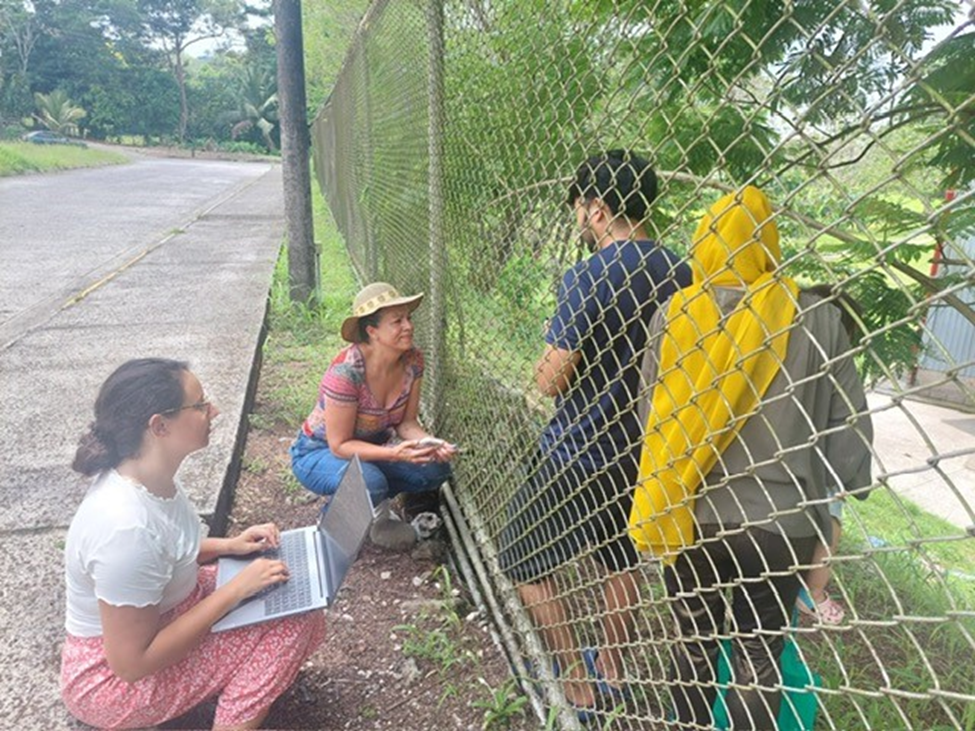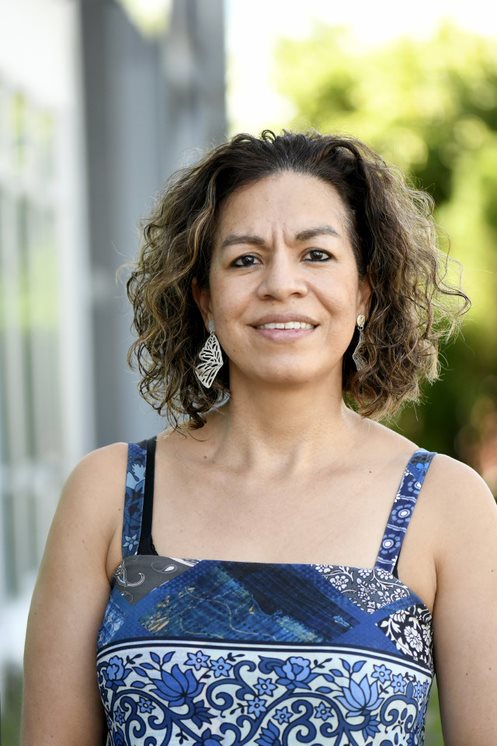
Migrants who were detained at Costa Rica's detention center are now able to move freely in the country. Photo: Marcia Aguiluz Soto/AFSC
When I visited Costa Rica's immigration detention center last month, I met migrants from as far away as Afghanistan, Russia, Iran, China, and other Asian countries. They had all been removed to Costa Rica on deportation flights from the United States. Some had been separated from their families who were still in the U.S. Most had no idea where they were being sent. All were locked up in the CATEM detention center against their will.
But today, I am happy to share some good news. The Costa Rican government has granted temporary humanitarian status to all who were detained at CATEM. Authorities have returned their documents and are now allowing them to move freely in the country.
The government’s decision came after collective advocacy by human rights organizations. When AFSC and our partners—the Jesuit Service for Migrants and the Center for Justice and International Law—visited the detention center last month, we helped bring attention to migrants’ plight. Other organizations—like Refugees International, Global Strategic Litigation Council, Amnesty International, and Human Rights Watch—have also pressured the government to uphold migrants’ rights.
People who were previously detained can now choose whether to stay at CATEM voluntarily. Those who remain will continue to receive food and other support while they determine their next steps. Some have already managed to leave Costa Rica. That includes three young men who recently arrived safely in Germany and texted me to express their gratitude for our support.
Moments like these remind us why this work matters. This is an important step forward. Yet while we celebrate these migrants regaining their freedom, we recognize that much more needs to be done.

In April, AFSC staff and partners spoke with migrants through a fence at CATEM detention center.
The challenges ahead
Despite this progress, these migrants now face new challenges that leave their futures uncertain. The humanitarian permits granted by the Costa Rican government are valid for only three months, with the possibility of a three-month extension. The temporary status does not allow migrants to work, making it hard for them to support themselves and their families. The government is also charging $55 for the permit—a fee that many migrants cannot afford.
The Costa Rican government has also stepped back from any responsibility to help migrants apply for asylum in other countries. Most have fled violence, persecution, or other dangers in their home countries and cannot return. Yet, most do not wish to stay in Costa Rica, where they struggle with an unfamiliar language, climate, and culture as well as a much higher cost of living than that of other countries.
Our ongoing commitment
AFSC and our partners are committed to supporting these individuals in several ways. We're connecting those who remain at CATEM with legal assistance to help them understand their rights and navigate their options. For those who cannot afford the $55 permit fee, we will help them cover this cost.
We’re also preparing a report with concrete recommendations for the Costa Rican government. We’re calling for more comprehensive support for migrants and cooperation with other countries to help them find safe destinations.
Our work extends beyond CATEM. Every day, dozens of migrants arrive at Costa Rica's southern border. Many have been deported from the U.S. to countries like Mexico or Guatemala and are now making the long journey south to return to their home countries. AFSC is providing food, hygiene items, and humanitarian assistance to these individuals. We are also documenting their stories to better under the challenges that migrants face on their journeys.
Throughout this process, our Quaker belief in the divine worth of every person guides our actions. These individuals deserve recognition of their humanity and to live safely with the resources they need to thrive.
I still remember the words of one woman I met during our first visit to CATEM last: "We're trapped. We can't go back. We've lost hope. Please help us."
Today, a small measure of hope has been restored. But we will not stop until these individuals—and all migrants—can find true safety, reunite with their loved ones, and rebuild their lives with dignity.
